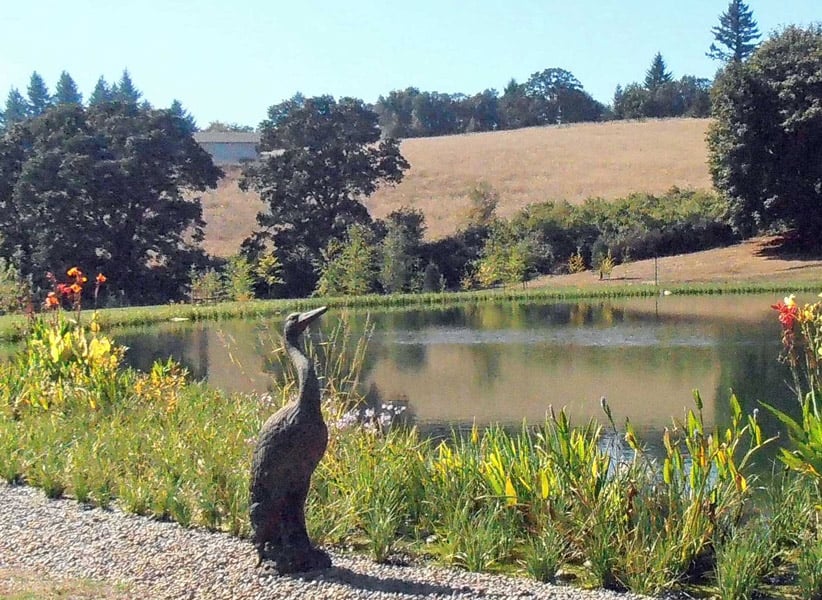Dear Glug,
Solar energy powers the pond. If you build a pond, you can provide planting beds for water plants constructing the pond’s engine (see Pond Physics). The engine is a river run rock shelf completely around the shore edge. This shelf should undulate so as not to have wave action. And it is at water level easily flooded and therefore suited for bog plants. Additionally, the water level and ground level should meet so as not to trap pond gasses in a hole. This also allows ease of access to the pond where boats can be launch anywhere from the shore. This site shows how to construct a pond engine.
Slough sedge (Carex obnupta) should be densely planted in the top of the shelf creating a bog. If you look at natural bog estuaries, sedge dominates; however, there is a diversity of plants among them. Slough sedge evolved 160 million years ago when the planet was experiencing global warming due to volcanic action. The summer temperatures exceeded 140 F where winter temperatures were around 70 F. Therefore today, the plant grows in the winter and can be dormant in the summer. However, if given water, it grows year around in either full sun or shade. This has great advantages because the winter growing sedge depletes nutrients and out-competes algae and summer growing weeds. Respiring sedge draws heat from the water making it Nature’s pond engine.
After you get a base planting, you will want to plant some flowers and other sedges and rushes that bear seed and nectar at various times of the year. This bog attracts a diverse population of insects and birds: the more diverse the population of animals and plants, the more robust the eco-system. This dense growth provides metabolism to the pond so that some heat is supplied to the pond year around where winter depletion of oxygen will not occur. And the engine provides habitat and cooling for the pond in the summer. Your bog powers the entire pond.
What a snug house for a frog! You can find safety in the bog with all of the other inhabitants of the pond from young fish to dragon fly larvae.
PonDoc from the pond
